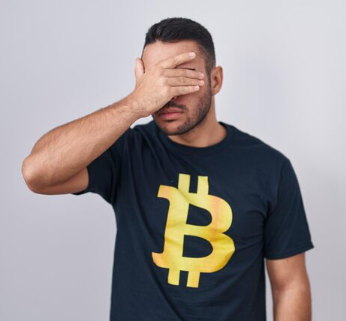Chat’s Take on Bitcoin Future
- Carl Boniface

- 20 de mar. de 2024
- 4 min de leitura
It appears that my predictions were wrong, on writing my blogs about investing in Cryptocurrency. Even one of my students, Marcus who was heavily invested while working as a tech manager, gave up his fulltime employment at the firm to dedicate solely to working on its development. I suppose that should have told me something!

Chat’s take on Bitcoin’s future was gathered by asking the following question: ‘How can bitcoin be so attractive when so many receivers have lost money in a bearish market, and then bitcoin isn't a good option via banks who are creating their own block chain technology to provide their own digital currency which will be in the form of real money.
Chat had this to say:
Bitcoin's attractiveness stems from several factors, despite its volatility and the risks associated with investing in cryptocurrencies:
Decentralization: Bitcoin operates on a decentralized network, meaning it is not controlled by any single entity, such as a government or central bank. This decentralization provides users with greater autonomy and control over their finances, as transactions are peer-to-peer and not subject to the oversight of a central authority.
Limited Supply: Bitcoin has a fixed supply cap of 21 million coins, which creates scarcity and can potentially drive up its value over time, especially as demand increases. This fixed supply contrasts with traditional fiat currencies, which can be subject to inflationary pressures due to central bank policies.
Store of Value: Many proponents view Bitcoin as a store of value akin to digital gold. They see it as a hedge against inflation and economic uncertainty, similar to how investors traditionally turn to gold during times of market instability.
Global Accessibility: Bitcoin can be accessed and used by anyone with an internet connection, making it particularly attractive for individuals in countries with unstable financial systems or limited access to traditional banking services.
Innovation and Technology: Bitcoin is built on blockchain technology, which offers several advantages, including transparency, security, and immutability of transactions. This technology has the potential to revolutionize various industries beyond just finances.
Speculative Opportunities: Despite its volatility, Bitcoin has generated significant returns for early adopters and savvy investors who have been able to navigate the market cycles. For some, the potential for high returns outweighs the risks associated with volatility.
While traditional banks are indeed exploring blockchain technology and developing their own digital currencies, these initiatives are often separate from Bitcoin and operate within existing regulatory frameworks. Bitcoin's appeal lies in its decentralized nature and independence from traditional financial institutions, which some users perceive as more secure and resistant to government manipulation.
That said, investing in Bitcoin and other cryptocurrencies carries inherent risks, including price volatility, regulatory uncertainty, and security vulnerabilities. It's essential for investors to conduct thorough research, understand the risks involved, and only invest what they can afford to lose. Additionally, diversification across different asset classes is recommended to mitigate risk in any investment portfolio.
I have a different take on the situation, as yesterday Bitcoin hovered around 73k and predictions for growth were exponential, based on the growth we have seen these last few years. Predictions are showing it could be worth as much as 1.3 million US$ by 2031.
Nevertheless, its high of November 2021 saw Bitcoin hitting 69k and then dropping to 67k at the end of the trading day. So, if we use real comparisons, it has increased 4k in 2.5 years, as today it dropped to 71k. Then the next day it was 68k. Volatile market. At that rate how can the professionals who are deeply invested into Bitcoin and crypto predict such massive growth?
This growth is relevant to several cryptocurrencies folding and a bearish market. No, it has nothing to do with the pandemic, but rather decentralized money streams aren’t welcomed by pukka financial systems. Banks are resentful that they could lose a share of their vast empire. And then there is a current $6.50 fee for every transaction made.
It makes no sense for day-to-day shopping. Supermarkets will more likely never accept it, as consumers will resent having to pay high transaction fees. A specialty coffee shop would become very expensive paying such a fee. Restaurants might accept settlement by crypto, but then which ones. If you are comfortable paying an additional fee on top of 18% tip, as in the USA then enjoy wasting what some are saying is monopoly money.
So, although it might be accepted by those who believe in it, there will be many who don’t. Those who have lost money, those who have witnessed scams, and those who prefer to stick to legitimate money sources. I’m no expert, so this is purely my take.
It is up to you to decide if it is worth the turmoil of risking your hard-earned cash when there could be another bearish market specifically because of other crypto-scams or another crash in the stock market.
Good luck if you are invested, or decide to buy in. Your courage is admirable!
Take care!
Prof. Carl Boniface
Vocabulary builder:
Scarcity (n) = shortage, lack, insufficiency, scarceness, inadequacy, (ant) abundance
Admirable (adj) = estimable, commendable, splendid, marvelous, highly regarded, excellent
.png)



Comentários